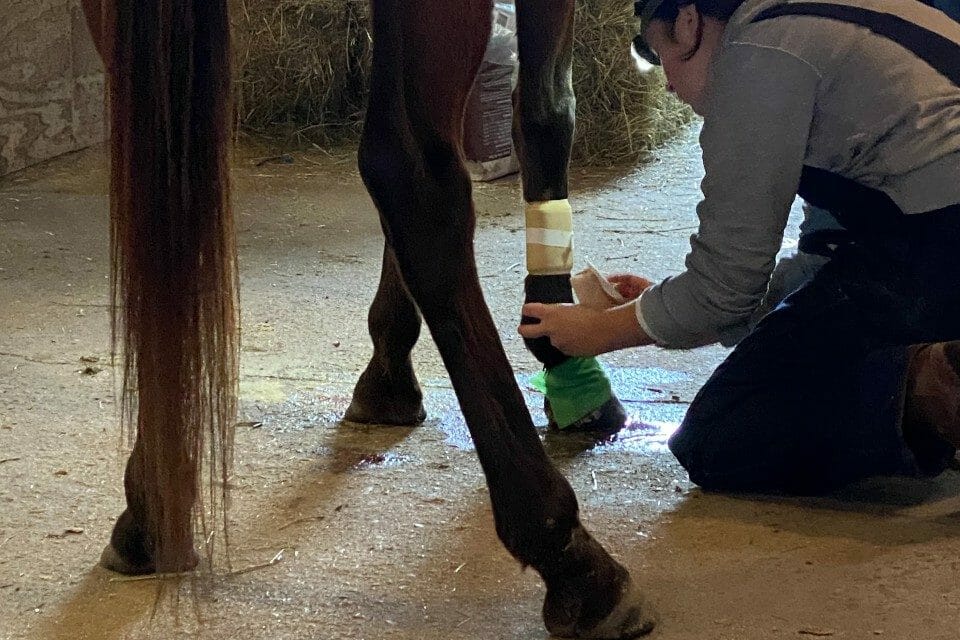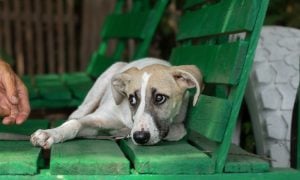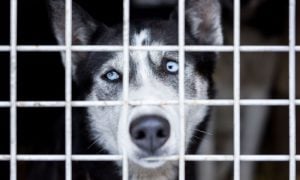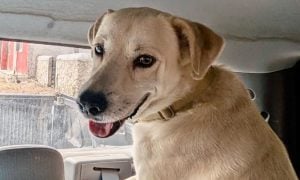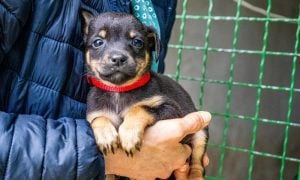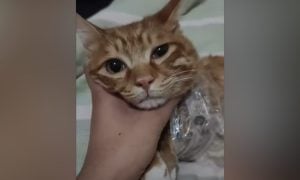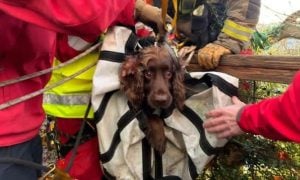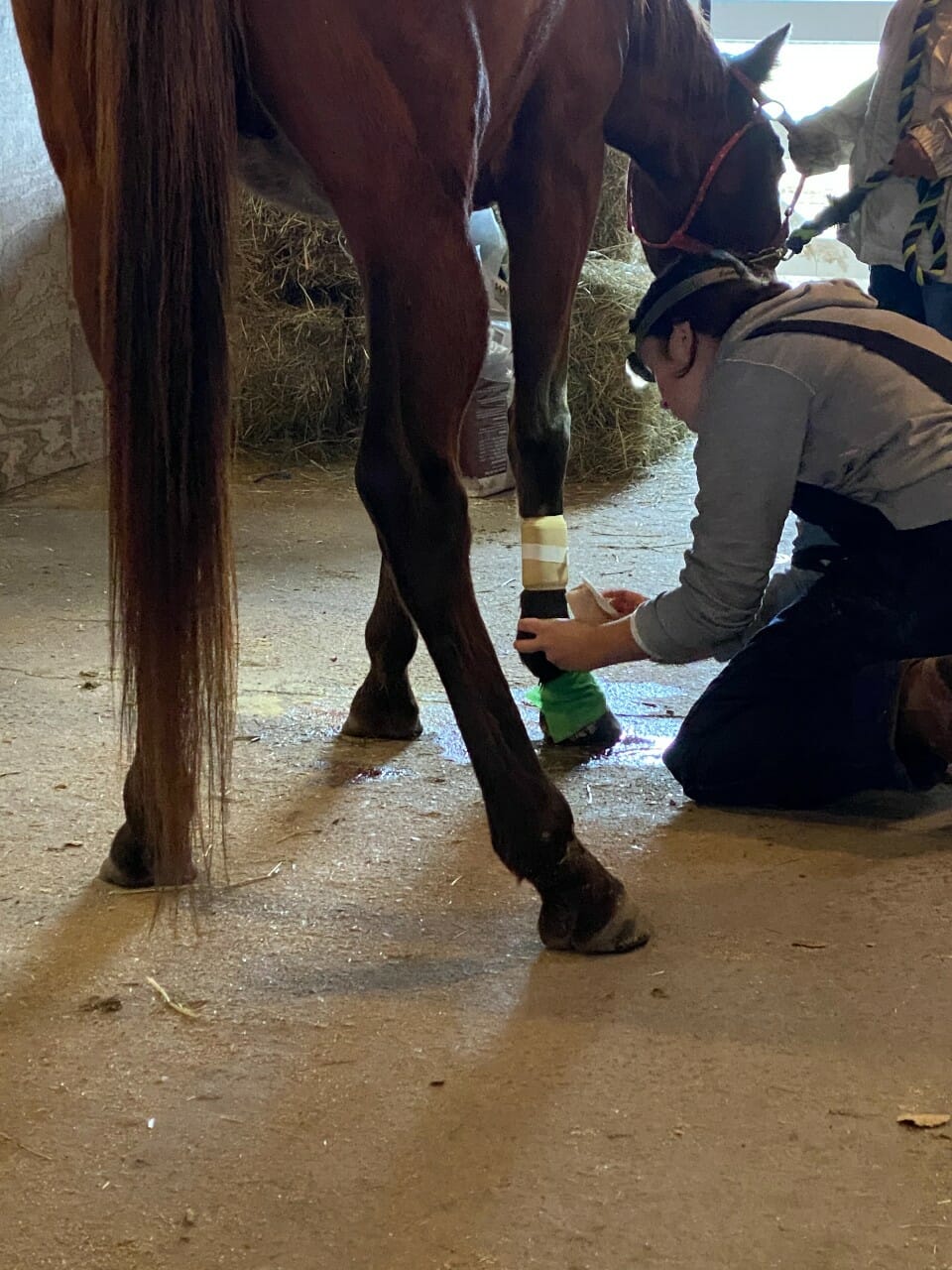This is part of a series highlighting recipients of Lady Freethinker’s new Urgent Need grant program, created to help rescuers with lifesaving veterinary expenses. Learn more about the program and how to apply here.
*
When staff at the Circle A Home For Horses equine therapy program asked 17-year-old “Michael” what he wanted to get out of his time with the horses, his response left them in tears.
“He said, ‘I hope that the horses can help me feel like I don’t need to kill myself’,” according to Alicia Mahar, the nonprofit’s founder.
Michael, whose real name is being withheld to protect his privacy, was one of hundreds of “at-risk” community youth who connected with horses since Mahar established the nonprofit in Virginia in 2014.
Denver, a cream-colored palomino gelding with a thin blaze formerly bound for a Pennsylvania kill lot, was one of dozens of horses the nonprofit had rescued from slaughterhouses and race tracks.
At their first meeting, neither Michael nor Denver was initially sure of the other. But the way Mahar tells it, after a moment’s consideration, Denver turned in his stall and buried his face in the young man’s chest. Michael then wrapped his arms around the horse’s neck and sobbed, she added.
“These horses are so intuitive. They just know,” Mahar said. “What these horses have done for children and people is amazing. They help the youth feel self worth and find a purpose to live.”
Mahar’s mission is to improve the lives of vulnerable youth and rescued equines through paired bonding, learning, and fellowship through partnerships with community organizations like the Barry Robinson Center, while also finding loving adoptive homes for the horses.
Since 2016, the nonprofit has re-homed more than 500 horses — including Denver, who touched the lives of more than 150 children before landing his forever home in Virginia Beach — and helped more than 2,000 youth through equine therapy.
Circle A Home For Horses was one of four nonprofits granted a full award of $5,000 through the first cycle of Lady Freethinker’s (LFT) Animal Crisis grant program, a part of the Urgent Need grant program that we rolled out in Winter 2020.
We wanted to spotlight our awardees so LFT readers can see exactly what kind of phenomenal work for animals they are supporting! We’ll highlight the other award winners as well in upcoming stories.
If you’d like to further support Circle A Home For Horses, you can learn more here.
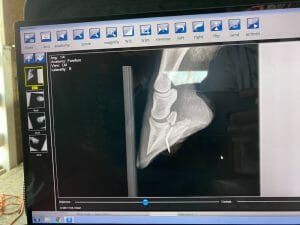
An x-ray showing a nail embedded in Shane’s foot (Courtesy Circle A Home For Horses)
A Q&A with Alicia Mahar, Founder of Circle A Home For Horses (Virginia)
What made you decide to focus on saving horses bound for slaughter and vulnerable youth?
I didn’t know that horses were being slaughtered in our country — I don’t think many people do — until I heard of a New Holland auction in Pennsylvania. The condition of the horses was appalling. Then I learned about kill pens, and I decided to become an advocate and then to work in rescue. When rescued horses come off the trailer, they look so dejected. They won’t make eye contact. They keep their heads down. It’s heartbreaking. I started working with them, and they are amazing animals.
The second piece came during a visit with my grandson, who was two years old at the time. He didn’t have a big vocabulary, but when he saw the horses, he just opened up. He started talking to them. I said to myself, “We have something here. I don’t know what it is, but it’s something.” I started doing research and then reached out to the Barry Robinson Center, a nonprofit here, and it grew from there.
What’s a “typical” morning like for you?
A large number of our rescued horses are off-the-track thoroughbreds from racetracks in Louisiana and Texas, and they come to us with a number of issues. We have to work with vets, farriers, and equine dentists to rehabilitate them.
I get up around 6 or 6:30 a.m. I do have employees who help me. If I’m not outside doing equine therapy, I’m in the barn, or working on grants, or holding horses for the vets, or making farrier appointments. Fortunately, I live on the farm, so all I have to do is walk outside!
Tell us about 2020.
We found forever homes for 71 formerly slaughter-bound horses in 2020. But 2020 also was a challenging year, with donations down over 25 percent. We’ve had so many people ask us for help with horses. We want to help, but we only have so much space.
What keeps you going on a bad day?
I go out with the horses. I’ll sit in the stable. I’ll go stand out in a pasture. They ground me. They remind me of why I’m doing this. I do get overwhelmed, absolutely, but I don’t lose sight of that.
How did you decide to invest the grant money?
We applied for the grant to help Here Comes Sharyn, a 6-year-old, Louisiana bred, off-the-track thoroughbred gelding rescued from a Louisiana kill pen. Since his name does not really fit his personality, nor his gender, we affectionately gave him the barn name of Shane. Shane came to us in June 2020, severely underweight and riddled with ulcers.
By December of last year, Shane was noticeably improving until he managed to step on a rusty nail buried in six inches of mud. Fortunately, we noticed immediately and had the vet on site within an hour. The vet told us that due to the location of the nail, the accident could be potentially life ending. If infection set in, Shane’s life would be over.
For six weeks, Shane received daily, then weekly, veterinarian care to flush his hoof joints in hopes of avoiding infection. With great veterinary care, comes big bills. Although we tried fundraisers and raffles to assist with Shane’s vet bills, we covered less than 10 percent.
Right up until February, the vet was strongly encouraging us to euthanize Shane. Now, today, he is out there running, playing, cantering with his buddies. He’s only five years old. He has his whole life ahead of him.
Is there anything you’d like LFT supporters to know about their support or your nonprofit?
When I opened the email about the grant, I cried. It was such a godsend. I was so grateful. Shane must be one of the sweetest horses ever to grace our barn. To say he deserves a happy and long life is an understatement.
People think that horses are only good for people who ride horses. But they are good for so many other reasons. They are companions to people. We have to end horse slaughter. We have to work toward a better system.

